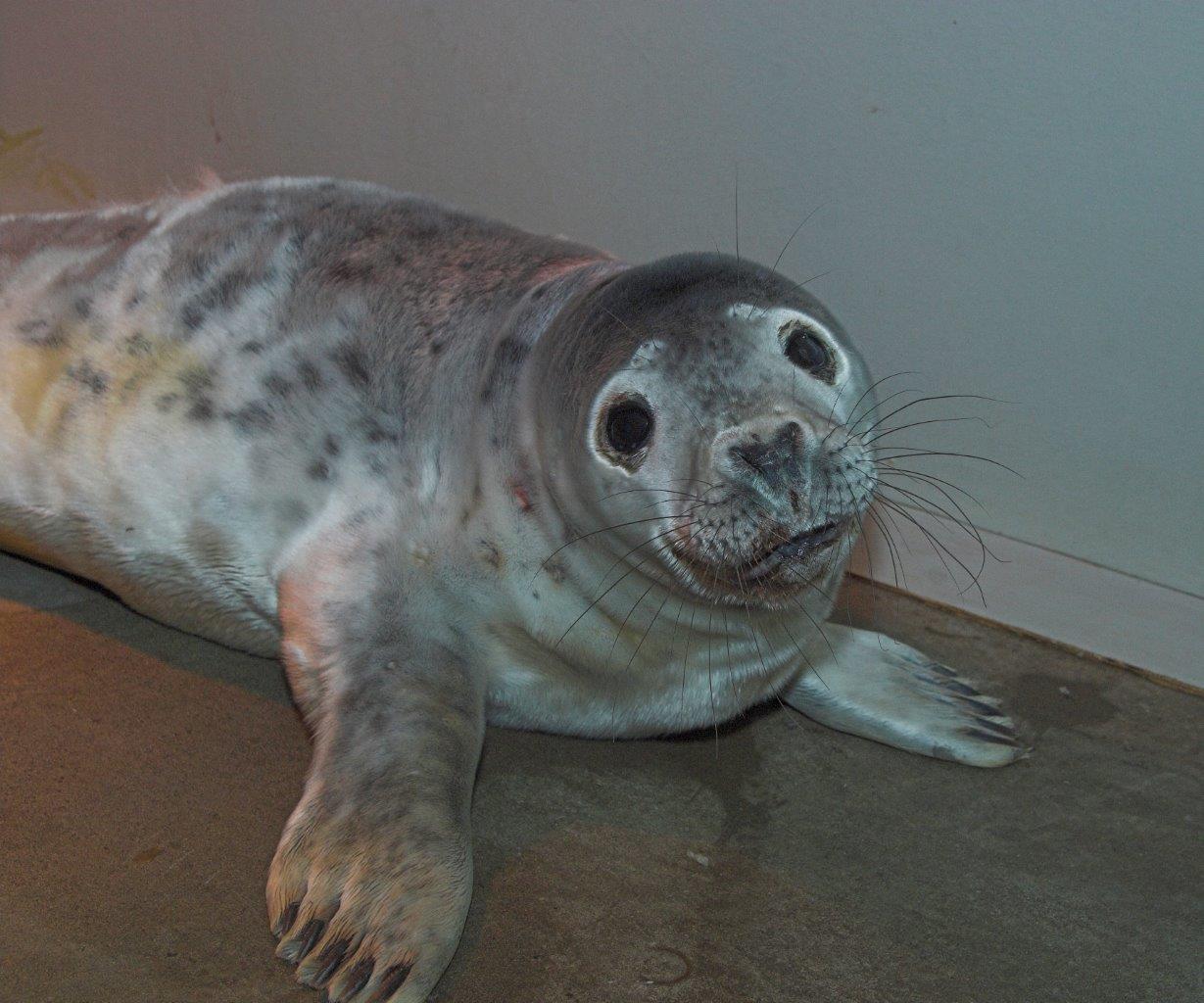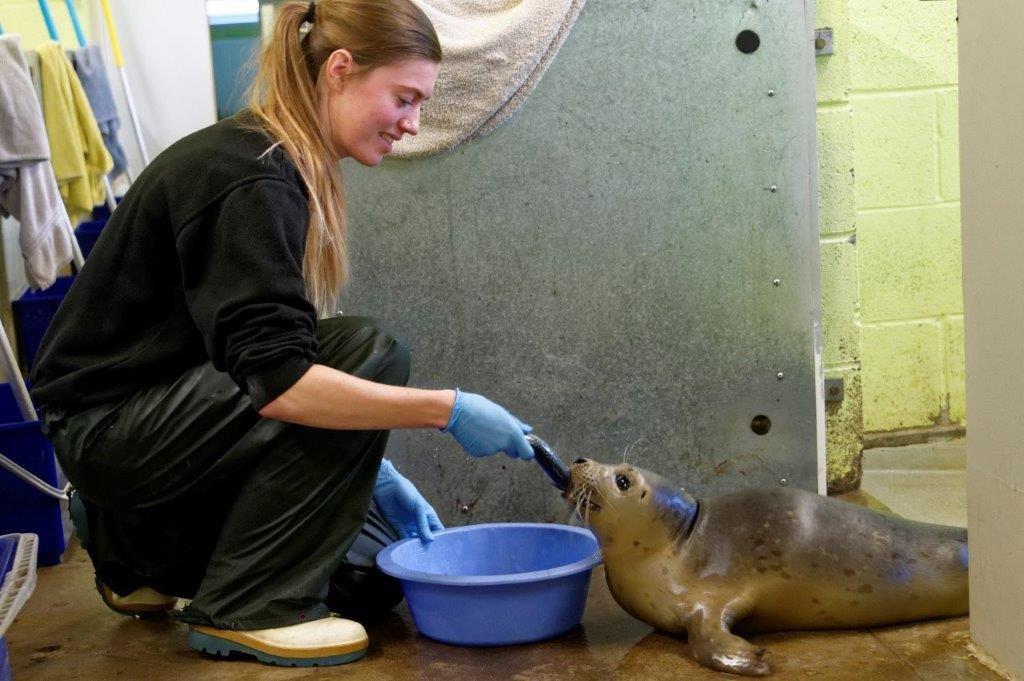
The Scottish SPCA cared for a record 177 seals at its national wildlife rescue centre in Clackmannanshire last year, according to latest figures.
The animal welfare charity said the rise could be due to increased public awareness about what people should do if they see a seal or seal pup.
One of the seals cared for last year was Snow White, who arrived at the centre in Fishcross after a member of the public noticed her looking distressed in Fraserburgh, Aberdeenshire.
Centre manager Colin Seddon said: “When she arrived at our centre she was dehydrated and her temperature was a little low.
“We’ll make sure she gets plenty of hydration before starting her on some fish soup, then moving on to solids.
“Each seal who came into our care last year carried a Disney, Pixar or Dreamworks name, and we were able to release many back into the wild following their rehabilitation.
“We cared for more seals than ever last year and expect to see this number rise even more this year.”

The number of seals rescued has soared since 2013 when the Scottish SPCA cared for 67 of the mammals.
The charity said it is extremely rare for a seal to brought in without needing some kind of treatment.
Officials said if you can get close to a seal then it is most likely injured or in trouble, and urged people not to approach them without giving the Scottish SPCA animal helpline a call first.
Mr Seddon said: “A mother seal will leave her pup on land while she is out feeding because it cannot swim very well until it has lost all of its white fur, which happens at around three to four weeks of age.

“If her pup is touched or moved, then there is a good chance she will abandon it.
“You should call our animal helpline immediately if you spot a seal pup as it might need urgent care.
“Please do not approach seal pups and keep dogs on a lead in case they frighten them into the water or even cause injury.”
Anyone who discovers an injured or distressed wild animal should call the Scottish SPCA animal helpline on 03000 999 999.


Comments: Our rules
We want our comments to be a lively and valuable part of our community - a place where readers can debate and engage with the most important local issues. The ability to comment on our stories is a privilege, not a right, however, and that privilege may be withdrawn if it is abused or misused.
Please report any comments that break our rules.
Read the rules here